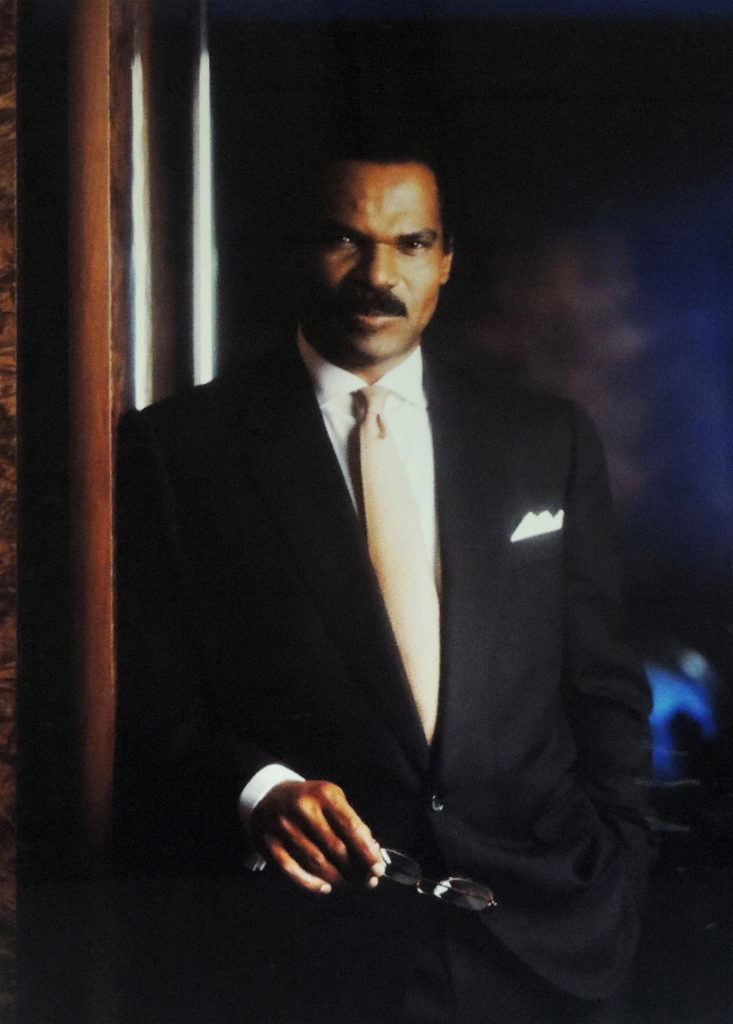
I like reading biographies how I like eating cantaloupe; cracking open the outer exterior of an individual, and then scooping out the juicy truths of his or her life. While reading the success stories of Warren Buffet, Mark Zuckerberg, Madam CJ Walker, and Beyoncé I, of course, pictured my own biography in the near future. My blissful fantasies soon turned into a somber disappointment as I wailed over the near impossibility of ever becoming as successful as those masterminds. Their life stories were just so different from mine, so distant and foreign.
Everything changed when I read Reginald Lewis’ journey of success. It felt like I was reading the biography of a distant uncle rather than some detached stranger. His origins were so similar to my own! I was finally able to imagine myself in his shoes without the difficulty of hurdling over a huge schism between our lives. I felt that God had pierced my cloudy future, muddied with uncertainty, with the light of familiar possibility. He had finally provided a real life example of a person from a living situation very similar to my own, who applied an upright business ethic to an outstanding career.
Reginald Lewis, the first African American to join the billionaire status in business acquisition, was born in East Baltimore, a place that is a home to many of my loved ones. His mother was a mail carrier and his stepfather, a teacher. His family was not particularly wealthy, but they instilled in him a work ethic more valuable than the most precious metals. His family mirrored a team of mentors and coaches that encouraged him to pursue academia and private industry.
From a young age, Lewis began growing an extraordinary business acumen. By ten years old, he owned his own newspaper route and within two years he grew the business from ten customers to over one hundred. He then sold the delivery route for a decent profit.
Years after this childhood business venture, Lewis continued to enhance his professionalism in buying, rejuvenating, and selling businesses at a maximum profit. This skill paved his way to the billionaire status. In 1983, Lewis formed his own investment banking firm called TLC (he kept the meaning of the acronym anonymous). His firm took a keen interest in the McCall Pattern Company, which specialized in the production of sewing products, but struggled with slow sales and heavy debt. While other companies viewed McCall as a dying corporation, Lewis saw the deep commitment and potential of the McCall staff. He, spending $1 million of his own money, and $24 million through a syndicate loan, bought the McCall Pattern Company. After revitalizing the infrastructure and cost–management department of McCall, Lewis sold the company for $95 million the next year. This transaction yielded Lewis an amazing 90–to–1 return on investment, a feat well acknowledged by Wall Street and other business organizations.
Lewis then proceeded to accomplish an even greater buyout. Living in Paris in 1987, Lewis bought Beatrice International, a multinational food and beverage conglomerate which sold produce in Europe, Latin America, and Asia for 985 million dollars. Under Lewis’ management the net sales of this company bolstered to a whopping $2.2 billion, naming TLC Beatrice International the first black–owned business to acquire over $1 billion in sales. Reginald was then known as the wealthiest African American in the the U. S.
Reginald Lewis’ accomplishments are astounding, but I was most astonished by his origins. He grew up in Baltimore, Maryland, the place of my birth and rearing. He attended Dunbar High School, the high school that my first boyfriend attended, and he obtained a degree in economics in college, the major that I am pursuing as well. Though Mr. Lewis shied away from being considered as a great role model, that is exactly what he is to me. A real example of man from Baltimore, who grew an acuity for business and established a corporate entity respected world- wide. His success, though extremely astounding and unprecedented for blacks during his time, seems possible and reachable to me now because of the familiarity of his past. I thank him for it.

